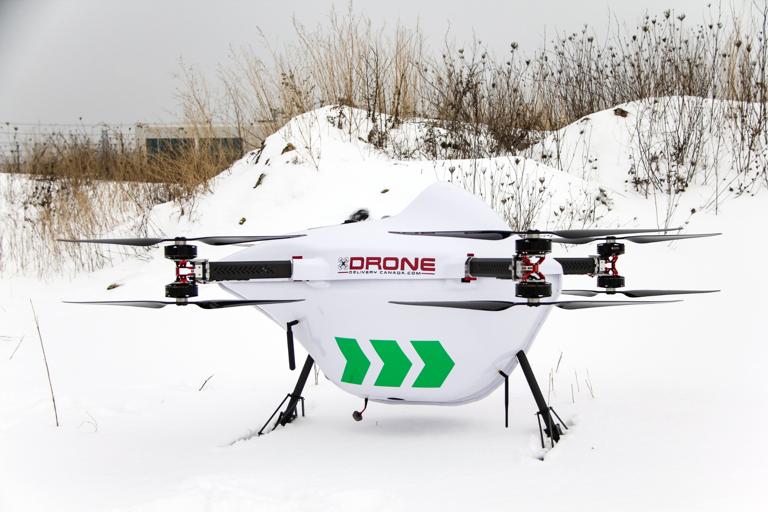Innovation & Tech
Canadian Engineers Test Drone Delivery Over Remote Lakes
A new drone delivery project in Northern Ontario aims to supply medical goods across difficult terrain, dramatically reducing transit time.

On a snowy morning in Northern Ontario, a sleek white drone lifted off from a temporary launch pad beside a frozen lake, carrying a package of essential medical supplies. This wasn’t a tech demo or a gimmick—it was part of a groundbreaking test flight conducted by Canadian engineers aiming to redefine how remote communities receive life-saving goods.
The pilot project, led by the Canadian Advanced Logistics Consortium (CALC), focuses on delivering high-priority cargo across isolated terrain where road access is limited or non-existent. These test flights have been quietly taking place over the past three months in areas like Lake Nipigon and Wabakimi Provincial Park.
The star of the show is a hexacopter drone developed in partnership with Drone Delivery Canada, designed for endurance and stability. The aircraft is equipped with GPS navigation, environmental sensors, and an autonomous flight system that enables it to adjust mid-flight to wind and snow conditions.
Flight engineer Samantha Cloutier explains that the drone can carry up to 10 kilograms and travel 60 kilometers on a single charge. 'Our goal isn’t just speed—it’s reliability,' she says. 'We’re designing these drones to operate in the kind of weather that would ground most delivery services.'
Local health centers in First Nations communities have already received test deliveries of insulin, bandages, and diagnostic kits. In one instance, a malfunctioning ground vehicle meant a drone was the only way to deliver time-sensitive medications during a snowstorm. The successful drop may have saved lives, according to community leaders.
Transport Canada has closely monitored the project to assess regulatory compliance and air safety. Special permits were issued for beyond-visual-line-of-sight (BVLOS) operations—an essential feature for scaling the drone network in Canada’s vast northern regions.
As Canada grapples with the twin challenges of climate change and infrastructure decay, drone logistics are being taken more seriously. The federal government has earmarked $12 million in funding for last-mile delivery innovation, and CALC is expected to be among the frontrunners for a major grant next year.
Critics of the technology argue that drone delivery could introduce new forms of surveillance and environmental disruption. In response, the CALC team has developed an ethics protocol that includes data privacy guarantees, wildlife avoidance systems, and extensive community consultation prior to each deployment.
Plans are already underway to expand test zones into Manitoba and northern Quebec. There’s also talk of adapting the drones to perform wildfire surveillance and search-and-rescue operations, roles that require similar mobility and real-time data gathering.
For now, the engineers are focused on proving that their drones can perform under pressure. 'Every successful flight brings us closer to making health care more accessible,' Cloutier says. 'And if we can help close the gap between urban and remote Canada, then it’s worth every second in the cold.'